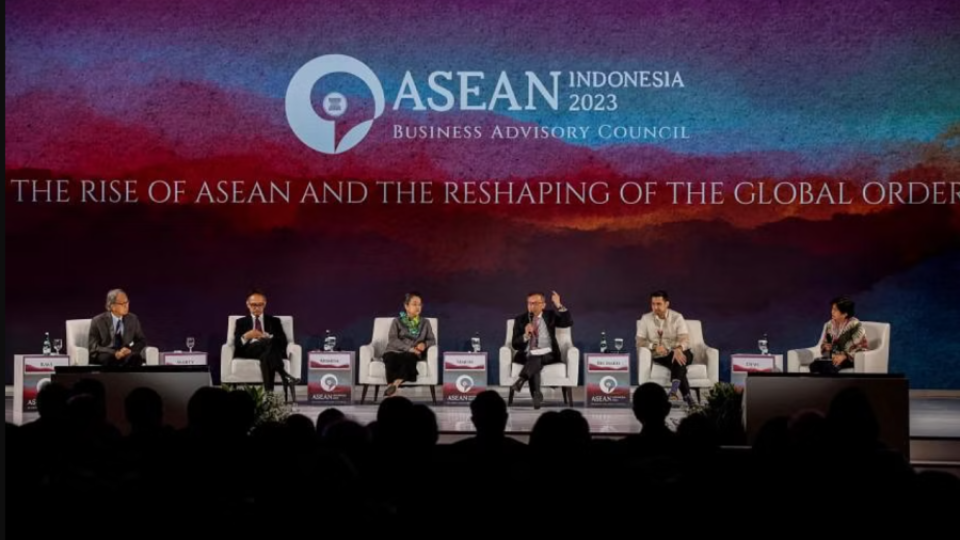September 4, 2023
JAKARTA – Online trade across countries in South-east Asia is set to become faster and more convenient, as Asean starts work on a new framework that could unlock a potential US$2 trillion (S$2.7 trillion) in its digital economy by 2030.
The bloc on Sunday launched negotiations on the Asean Digital Economy Framework Agreement (Defa), which will facilitate more seamless cross-border digital trade.
Singapore’s Ministry of Trade and Industry (MTI) said on Sunday that the framework will make it easier to do business within the region by improving rules in key areas such as digital trade facilitation and payments.
“It also aims to address top-of-mind emerging trends and developments such as artificial intelligence,” added MTI.
The launch of negotiations on the Asean Defa took place at the 23rd Asean Economic Community (AEC) Council Meeting, held in Jakarta. Singapore was represented by Minister for Trade and Industry Gan Kim Yong.
The development of the widely anticipated framework agreement comes after the bloc met in Semarang in Central Java in August to endorse a study on Defa.
According to the study, done by the Boston Consultancy Group, the agreement is projected to double the regional digital economy from US$1 trillion to US$2 trillion by 2030.
The Asean Defa negotiations are targeted for conclusion by 2025.
Mr Gan said that launching negotiations on the Asean Defa builds on the good work the group has done.
He added: “It will digitally join up our region and bring us closer to achieving an open, secure and competitive regional digital economy.
“Singapore looks forward to working with Asean member states to expeditiously conclude negotiations, and help our companies better leverage new growth opportunities.”
Asean is Singapore’s largest trading partner in goods and Singapore’s largest investment destination.
In 2022, Singapore’s total trade in goods with Asean amounted to $344.3 billion, an increase of about 19 per cent over the previous year. Singapore invested $23.9 billion into Asean in 2022, up 8 per cent from the previous year.
Defa has the potential to boost the region’s digital ambitions and drive socio-economic progress, said Ms Annabel Lee, director for public policy in Asean at Amazon Web Services.
“It will allow Asean to continue to democratise access to cutting-edge digital technology through the cloud for all – from fast-growing start-ups to large enterprises, and leading government agencies,” she added.
Similarly, director of regional public affairs and policy at technology company Grab Jamie Ko said that the diverse economies in the region can unlock greater potential with more integrated digital economic cooperation.
She added: “Interoperable digital economy systems, cross-border data flows and digital trade are all essential to building a trusted digital environment that can drive growth across South-east Asian economies.”
At the meeting on Sunday, Asean also emphasised the importance of improving implementation by refreshing its economic community’s processes to ensure the region has a successful and resilient future.
The bloc endorsed an agreement its ministers earlier made on sustainable energy security through interconnectivity.
MTI said: “This will diversify our energy supply chains by promoting the role of regional interconnectivity under the Asean Power Grid and the Trans-Asean Gas Pipeline.”
The digital economy, as well as other issues, will be among topics that Asean leaders will be discussing at the 43rd Asean Summit and related meetings, which will be held in Jakarta from Tuesday to Thursday.
In a post on its website on Sunday, Asean said that Defa is touted to be the first major regionwide digital economy agreement in the world.
The bloc added that the first meeting of the Asean Defa’s negotiating committee is scheduled to take place by the end of 2023.
This committee, chaired by Thailand and including negotiators from all 10 Asean member states, has overall responsibility for negotiating the Defa provisions.
These will be based on the principles, process and timeline identified by the grouping.


